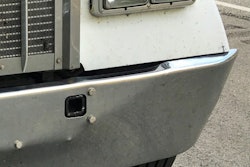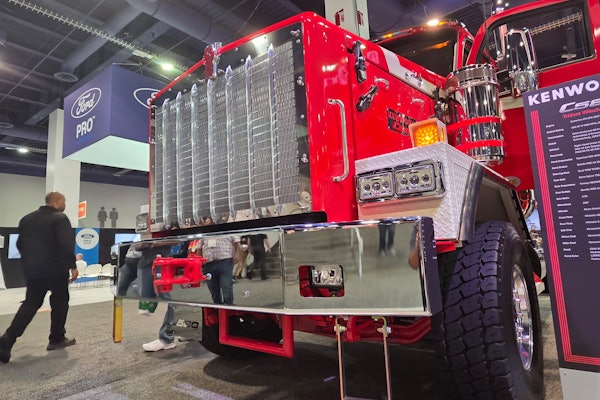Truck owner-operators are vulnerable not only to financial loss and a trashed credit score from identity theft but also to legal complications that can threaten your livelihood. The risk may be greater for you than most, given constant traveling and other factors.
There are dozens of ways people can have their identities compromised, but here are some key areas where truckers are particularly vulnerable:
Your driver's license, which in some cases drivers are required to show (and even have a copy made) at shippers and receivers, can be used to find more information about you online.
At fuel pumps and ATMs, skimming devices can be used to collect credit and debit card information. Be mindful of an ill-fitting card slot, as it's likely a skimming device. Two precautions are to avoid fuel pumps that can’t be seen easily by truck stop personnel and to avoid ATMs in low-traffic locations. Additionally, you should cover any numbers you enter on a keyboard at a pump or ATM.
Your mail can also be used by ID thieves. If you're on the road for long periods of time and not home nightly, try to recruit someone to pick up your mail or rent a post office box. To be extra cautious about theft of outgoing mail with personal data, deposit it in U.S. Postal Service collection boxes instead of your home mailbox. Likewise, shred papers with sensitive information before leaving them for garbage pickup.

Be wary of accessing personal information via public WiFi networks. Be wary of using public WiFi at truck stops and elsewhere to check bank accounts and other personal data. A crook on the same WiFi network could collect that sensitive information.
Basic personal identity theft also can be used for cargo theft that could derail an owner-operator’s career. Suppose a thief with commercial driving skills collects enough information on another driver to create a fake ID and pose as that driver. They then could go out and take a couple loads or get paid for a load and not deliver it. At that point, the victim’s whole business has been compromised.
If you're independent with authority, avoid sharing your business' certificate of insurance (COI) with would-be identity thieves, who sometimes pose as brokers or dispatchers asking for your COI, an otherwise routine request for verification before tendering you a load. With your COI, thieves gain access to information about your address, company name, insurance policy number, vehicle identification number, insurance carrier and more. That information could then potentially be used to impersonate your business for load payment theft or fraudulent double-brokering purposes.
[Related: FMCSA needs a 'cop on the block' fighting brokered-freight fraud]
Find more information about this topic and bedrock owner-operator business practice, among a myriad other subjects, in the Overdrive/ATBS-coproduced "Partners in Business" manual for new and established owner-operators, a comprehensive guide to running a small trucking business. Click here to download the updated 2022 edition of the Partners in Business manual free of charge.









